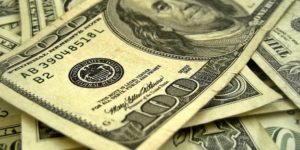
On the occasion of the national Martin Luther King holiday, NBC yesterday released the results of a poll asking Americans whether they believe King’s oft-quoted “dream” has been realized: “that my four little children will one day live in a nation where they will not be judged by the color of their skin but by the content of their character.”
Slightly more than half of Americans say they believe his dream has been realized, but 70 percent of African-Americans in the poll said it has not, according to the NBC News/ Wall Street Journal survey.
While there will be many truckloads of newspaper ink and website space devoted to debates between Blacks and whites attempting to prove that racism is still present—or it’s not—another report was released yesterday that much more powerfully illustrates the vicious and dishonorable nature of the world we live in. The anti-poverty charity Oxfam released a report saying that by next year, the top 1 percent will have more wealth than the remaining 99 percent of the planet. To put it in even more detailed perspective, there are 80 billionaires who have the same amount of wealth as the bottom 50 percent of the global population—meaning 3.5 billion people share between them the same amount of wealth as these 80 extremely wealthy individuals.
And because the global recession has made the poor even poorer in recent years, the gap has been growing ever larger. In 2010, it took 388 billionaires to equal the wealth of the bottom half of the world’s population. But by 2014, the figure had fallen to just 80 billionaires.
While this extreme stockpiling has been going on at the top, it is hard not to notice that the globe in the last few years has seen an unprecedented amount of racial, religious and societal strife, from Ferguson to France, Ukraine to Nigeria, Palestine to North Korea. In the U.S., we have been consumed over the last two years with racial hostilities, sucking up our collective energy, pitting against each other groups that are all squirming around in that bottom 50 percent, unaware and seemingly unconcerned about what’s going on in the houses of the 1 percent.
It’s hard to believe this is coincidence—that these exhausting distractions are unrelated to the most obscene and imbalanced wealth accumulation in human history.
“Do we really want to live in a world where the one percent own more than the rest of us combined?” Oxfam’s executive director, Winnie Byanyima, asked yesterday. “Business as usual for the elite isn’t a cost free option. Failure to tackle inequality will set the fight against poverty back decades. The poor are hurt twice by rising inequality—they get a smaller share of the economic pie and because extreme inequality hurts growth, there is less pie to be shared around.”
Income inequality and the vicious brutality of capitalism is the story of our time, the overarching reality that circumscribes so much of the quality of life we all live, even when we don’t realize it. Racism and religious fundamentalism are waved in our faces like shiny objects and we take the bait, lunging at each other like ornery dogs on leashes while the elites keep stockpiling the cash—aided by offices full of lobbyists being paid handsomely to twist the systems to their advantage.
While this has long been the story of humankind, it has grown so disturbingly extreme in the last several decades that this year’s war between the police and Black people feels like a giant magic trick.
Study after study shows that such extreme wealth imbalance hurts not only those on the bottom but the growth of economies. Billionaires acting only in their self-interest, worshipping the god of greed, keep the ceiling artificially lowered so that no one else can rise. Is this what Adam Smith envisioned when he wrote in 1776’s “The Wealth of Nations,” considered the founding document of modern capitalism, that the market works by each player “pursuing his own interest,” which in the end will benefit all of society?
Capitalists have pursued their own interests in recent years with bloodthirsty zeal, stockpiling castles and private jets while the rest of us scream in each other’s faces. The Occupy movement was well on its way to making a case against the 1 percent. But the movement dissipated through vast and varied forces—only to be replaced by more bright shiny objects in the form of increased racial and religious discord.
This enormous imbalance doesn’t have to be permanent. Those 80 billionaires might be protected by armies of lobbyists and lawyers, with more than a few politicians in their pockets. But how far can they get when they are being chased by 7 billion people?


